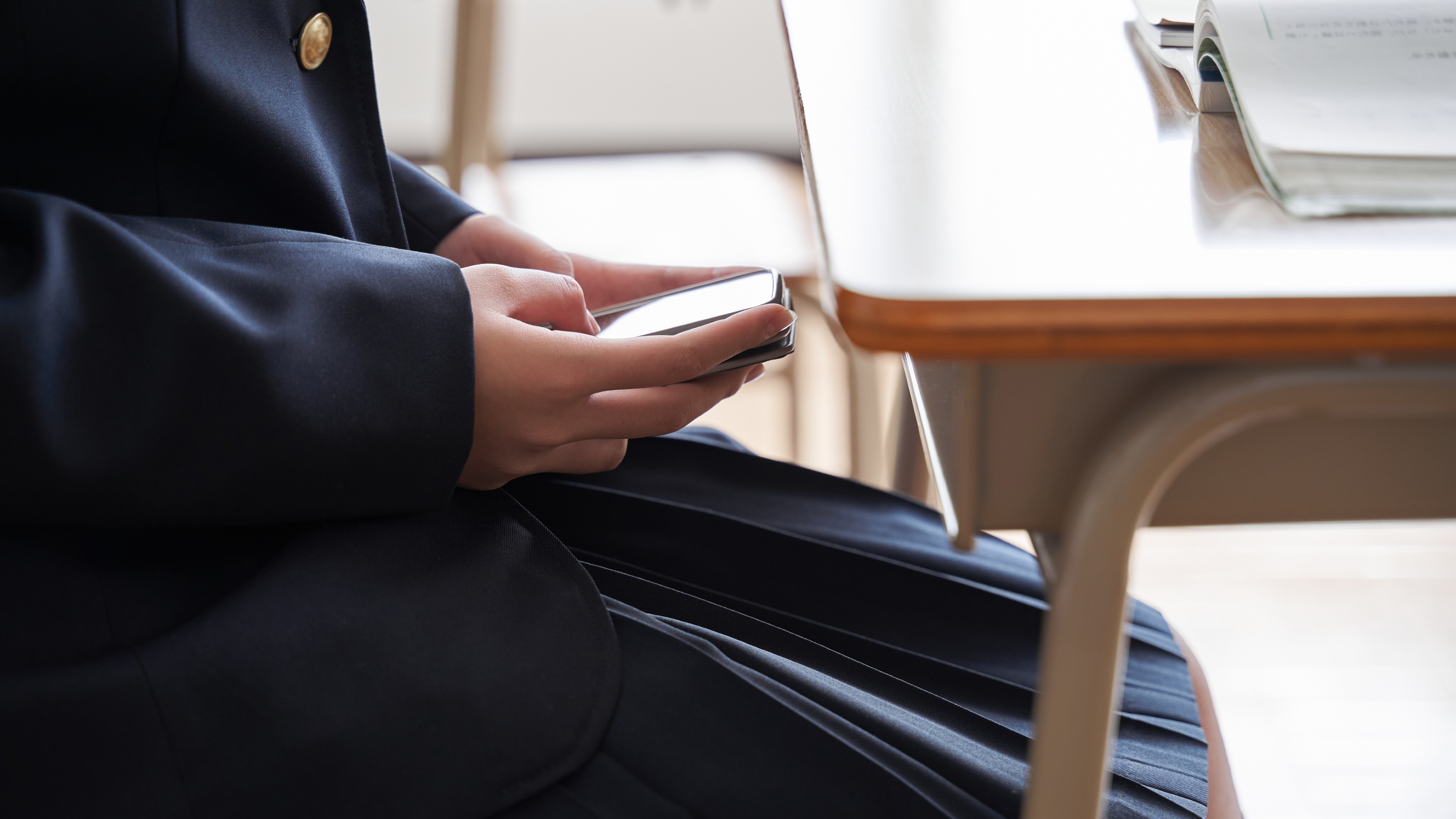Smartphones face bans in US schools
Educators say the devices disrupt classrooms


A free daily email with the biggest news stories of the day – and the best features from TheWeek.com
You are now subscribed
Your newsletter sign-up was successful
You can take their smartphones, but you'll never take their freedom. James Madison High School in Houston was locked down earlier this month after students "stormed out of their classrooms" to protest a new ban on cellphones in school, the New York Post said. The student body had been in an "uproar" over rules that required them to leave their phones at the front desk at the beginning of each school day. But Principal Edgar Contreras said phone use by students had been disruptive — and had even "been at the center of fights that have broken out at our school."
Educators nationwide are dealing with an array of phone-related disruptions, said The Associated Press. Students use their phones to "send Snapchat messages in class" as well as "listen to music and shop online" while they should be paying attention to their lessons. "Students used to have an understanding that you aren't supposed to be on your phone in class," said one Los Angeles high school teacher. "Those days are gone."
This means Houston isn't alone in seeing a phone ban as the answer, said USA Today. Phones are "a big part of the reason why our scholars are not on task in class," said the school superintendent in Flint, Michigan, which prohibited the devices this year. School districts around the country are pondering similar measures. The challenge? Coming up with effective policies can be difficult "when kids are so glued to their devices and learning is so dependent on technology."
The Week
Escape your echo chamber. Get the facts behind the news, plus analysis from multiple perspectives.

Sign up for The Week's Free Newsletters
From our morning news briefing to a weekly Good News Newsletter, get the best of The Week delivered directly to your inbox.
From our morning news briefing to a weekly Good News Newsletter, get the best of The Week delivered directly to your inbox.
'Teachers dislike cellphones'
"Fears about the impact of cellphones and social media on children have united political rivals," said CBS News. Democrats and Republicans in Congress have come together to propose bills "to curb, shift or study the impact of phones and social media on kids," particularly in classrooms. For example: Sens. Tom Cotton (R-Ark.) and Tim Kaine (D-Va.) have cosponsored a federal effort to study school district phone policies. "Teachers dislike cellphones the way the devil hates holy water," Cotton said.
Another bill spearheaded by Sen. Ted Cruz (R-Texas) would require schools that receive federal funds to cover broadband costs to block access to social media services, said The Columbian in Vancouver, Wash. But only a third of schools nationwide participate in that program, "limiting the scope of such legislation." And in any case, this might not be a case for the feds. "Solutions should fall to individual districts."
If there is a federal ban, though, it shouldn't only cover social media outlets like TikTok, Bloomberg said in an editorial. A better idea? "Banning mobile phones from schools altogether." Studies link phones and social media to rising rates of "teenage depression, emotional distress and self-harm." They also force teachers "to waste valuable time policing their use." Which means anything short of a complete ban might be insufficient. "Bolder action is still needed."
'We should have a say'
It's an international problem. USA Today said that Finland and France have both implemented classroom phone bans in recent years. England and the Netherlands are putting similar policies in place. But it isn't easy to know where to draw the line. The Guardian said that English schools are being offered a "variety of ways" to curb phone use: Some institutions might order devices be left at home, while others might allow phones "on condition they are not used or heard." Some educators are skeptical of the second option. "My experience as a teacher tells me that letting students carry mobile phones is a terrible idea," one educator wrote.
A free daily email with the biggest news stories of the day – and the best features from TheWeek.com
Back in the United States, some students are using their education to make a counterargument. The Tampa Bay Times said a trio of eighth- and ninth-graders at Angeline Academy of Innovation last week used their entrepreneurship class project to pitch Superintendent Kurt Browning on the merits of phone access. They spoke of the need to communicate with parents, and to use music and games to decompress during downtime in the school day. Said one of the teens: "We believe that when rules like this are put in place, we should have a say."
Joel Mathis is a writer with 30 years of newspaper and online journalism experience. His work also regularly appears in National Geographic and The Kansas City Star. His awards include best online commentary at the Online News Association and (twice) at the City and Regional Magazine Association.
